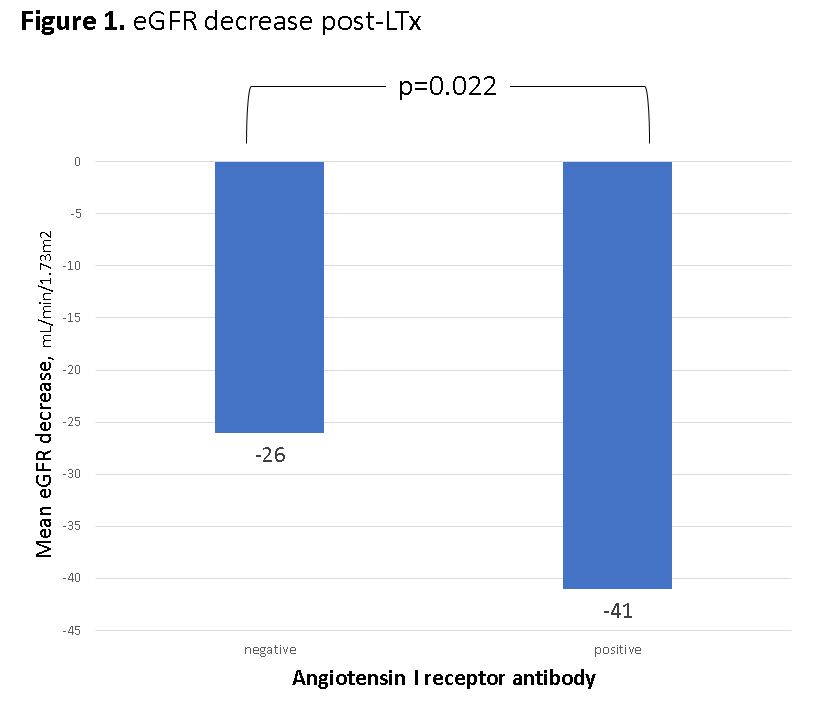
Pre-transplant angiotensin type 1 receptor antibodies are associated with acute kidney injury post-lung transplant
Andrei Darie1, Steven Hiho2, Samantha Ennis1, Bronwyn Levvey1, Helen Shingles1, Miranda Paraskeva1, Kovi Levin1, Glen Westall1, Lucy Sullivan2, Gregory Snell1.
1Lung Transplant Service, The Alfred Hospital, Melbourne, Australia; 2Australian Red Cross Blood Service, Melbourne, Australia
Introduction: Antibodies to angiotensin type 1 receptor (AT1Rabs) have been linked to poorer graft outcome in both kidney (KTx) and lung transplant (LTx) recipients. In KTx, a decline in kidney function in the presence of AT1Rabs might solely reflect graft rejection, whereas this association in LTx would imply an alternate immunogenic process leading to an acute kidney injury (AKI).
Methods: In this single-centre observational study we explored the association between pre-LTx AT1Rabs and post-LTx AKI in 85 adult patients undergoing LTx between July 2014 and December 2023. AT1Rabs >17 U/ml were considered positive. Kidney function was assessed using the CKD-EPI formula from LTx until discharge. AKI was defined as a sharp increase (within 48h) in serum creatinine of ≥ 26.5 mmol/L.
Results: The mean age of the patients at LTx was 58 ± 10 years and 60% were male. The mean concentration of serum AT1Rabs was 13 ± 8 U/ml and 15/85 (18%) of the subjects had a positive titer. AKI occurred in 40/85 (47%) of cases post-LTx and was more prevalent in the AT1Rabs positive cohort (40% vs 73%, p=0.023). Accordingly, the decrease in kidney function was more pronounced in the AT1Rabs population (-26 ± 23 vs -41 ± 26 mL/min/1.73m2, p=0.022) (Figure 1). Positive AT1Rabs were associated with a four-fold higher risk of developing AKI (OR 3.88, p=0.032).
Conclusion: Pre-LTx AT1Rabs are associated with AKI following LTx and might also be relevant as a mechanism of injury following KTx.

[1] Lung Transplant
[2] Antibodies
